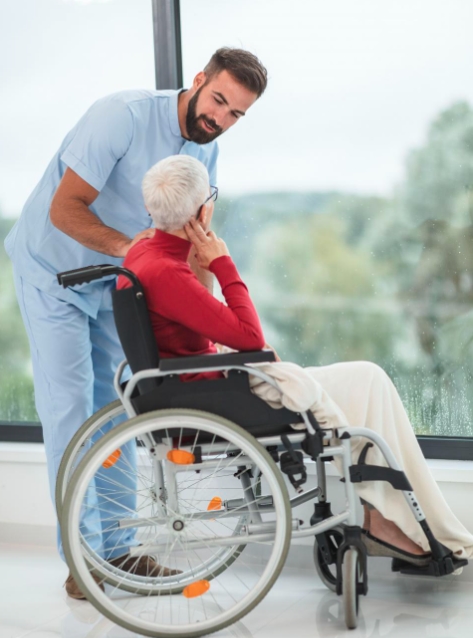Lack of accessible accommodation
Dr Caroline Gould, a wheelchair user and a consultant psychiatrist, had to sleep in her van for two nights while attending a training course at Raigmore Hospital in Inverness. She said she could not find any suitable accommodation in the city due to the high demand for hotel rooms from tourists and NHS staff.
She booked a room at a Premier Inn near the hospital, but when she arrived, she found out that the room was not accessible for wheelchair users. She said the hotel staff were apologetic and tried to find her another room, but there was no availability in the area.
She decided to sleep in her van, which she had adapted for her needs, rather than drive back to her home in Aberdeenshire, which is more than two hours away. She said she felt “humiliated” and “angry” by the situation, which she blamed on the lack of accessible accommodation in Inverness.
A widespread problem
Dr Gould said she was not the only wheelchair user who faced difficulties finding a place to stay in Inverness. She said she knew of other NHS colleagues who had similar experiences, and that some of them had to cancel their training courses or appointments because of the lack of accommodation.
She said the problem was not only affecting wheelchair users, but also people with other disabilities or health conditions, such as visual impairment, hearing loss, or chronic pain. She said the lack of accessible accommodation was a “breach of human rights” and a “barrier to inclusion” for people with disabilities.

She called on the Scottish Government, the NHS, and the hospitality industry to work together to address the issue and ensure that there is enough accessible accommodation in Inverness and other parts of Scotland. She said she wanted to raise awareness of the problem and encourage people to speak up about their experiences.
A call for action
Dr Gould said she had contacted the Scottish Government, the NHS Highland, and the Equality and Human Rights Commission to complain about the lack of accessible accommodation in Inverness. She said she had received some responses, but she was not satisfied with the actions taken so far.
She said she wanted the Scottish Government to introduce a mandatory accessibility rating system for hotels and other accommodation providers, similar to the one used in England. She said this would help people with disabilities to find suitable places to stay and avoid disappointment.
She also said she wanted the NHS Highland to provide more support and guidance for its staff and patients who need accessible accommodation, and to ensure that its own facilities are accessible and compliant with the Equality Act 2010. She said the NHS Highland should also work with the local authorities and the hospitality industry to increase the supply and demand of accessible accommodation in the area.
She said she hoped that her story would inspire other people with disabilities to share their experiences and demand better services and facilities. She said she believed that people with disabilities had a lot to contribute to society and deserved to be treated with dignity and respect.


















